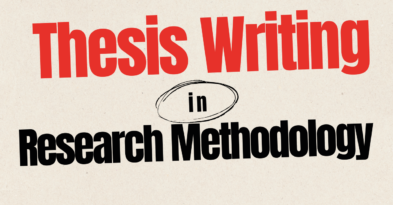Important Tips for Writing a PhD Thesis: Choosing the Right Topic and Research Methodology
Kenfra2025-01-13T14:44:41+05:30Writing a PhD thesis is a challenging yet rewarding journey It requires careful planning, a deep understanding of your research area, and consistent effort. Whether you’re just starting or revising your draft, having a structured approach can make all the difference. Here are some essential tips for writing a PhD thesis, including guidance on selecting an appropriate topic and research methodology.

Tips for Writing a PhD Thesis
1. Plan Your Work Strategically
- Break Down Tasks: Divide your thesis into smaller, manageable sections such as the introduction, literature review, methodology, results, and conclusion.
- Set Deadlines: Create a timeline for each section to stay on track.
- Prioritize Milestones: Focus on critical aspects like data collection and analysis before fine-tuning the writing.
2. Conduct a Comprehensive Literature Review
- Explore existing research to identify gaps in knowledge.
- Use reliable sources such as peer-reviewed journals and academic books.
- Organize your review thematically or chronologically to present a clear narrative.
3. Stay Organized
- Maintain a central repository for your references, notes, and drafts.
- Use tools like Zotero or EndNote for citation management.
- Regularly back up your work to avoid losing progress.
4. Write Regularly
- Set aside dedicated time each day for writing.
- Start with rough drafts and refine them later.
- Don’t aim for perfection in the first draft; focus on getting your ideas down.
5. Seek Feedback Early and Often
- Share drafts with your advisor or peers for constructive feedback.
- Attend conferences and workshops to gain external perspectives.
- Be open to criticism and use it to strengthen your thesis.
6. Address Your Research Question Clearly
- Ensure your thesis revolves around a central research question.
- Continuously revisit your question to maintain focus and relevance.
How to Choose an Appropriate Topic for Your PhD Thesis
Choosing the right topic sets the foundation for a successful thesis. Here’s how to make the right choice:
1. Align with Your Interests and Expertise
- Pick a subject area you are passionate about to stay motivated throughout your research journey.
- Ensure you have the necessary background knowledge or are willing to invest time in learning.
2. Consider Practicality and Feasibility
- Assess the availability of resources, funding, and time required for your research.
- Choose a topic that can be realistically completed within the duration of your PhD program.
3. Identify Research Gaps
- Read extensively in your field to find areas that have not been explored or need further investigation.
- Focus on problems that are relevant and impactful.
4. Seek Guidance
- Discuss potential topics with your advisor or mentors.
- Consider their suggestions based on their experience and expertise.
5. Ensure Originality
- Verify that your chosen topic contributes new insights to your field.
- Avoid repeating studies unless your approach or perspective significantly differs.
How to Select the Right Research Methodology
The methodology is the backbone of your thesis. Choosing the right one ensures your research is credible and effective.
1. Understand Your Research Objective
- Clearly define whether your study is exploratory, descriptive, or explanatory.
- Decide if your research requires qualitative, quantitative, or mixed methods.
2. Consider Data Availability
- Evaluate the availability of data and resources before finalizing your methodology.
- Choose methods that align with the data you can realistically collect.
3. Evaluate the Pros and Cons
- Review the strengths and limitations of various methodologies.
- Consider factors like cost, time, and the accuracy of results.
4. Stay Ethical
- Ensure your methodology complies with ethical guidelines.
- Obtain necessary permissions and consent if working with human subjects.
5. Justify Your Choice
- Provide clear reasoning for selecting your methodology in your thesis.
- Link your choice to your research objectives and questions.
Common Mistakes to Avoid
- Procrastination: Start early to avoid last-minute stress.
- Overloading Information: Be concise and relevant in your writing.
- Neglecting Proofreading: Edit and proofread your work thoroughly for grammar, structure, and coherence.
- Ignoring Study Limitations: Acknowledge and address any limitations in your research.
Final Thoughts
Writing a PhD thesis is a marathon, not a sprint. By carefully choosing your topic, selecting the right methodology, and following a structured writing process, you can create a thesis that stands out. At Kenfra Research, we provide expert support for PhD scholars at every stage of their journey. From topic selection to thesis proofreading, we’re here to make your research process smoother and more rewarding.







Leave a Reply